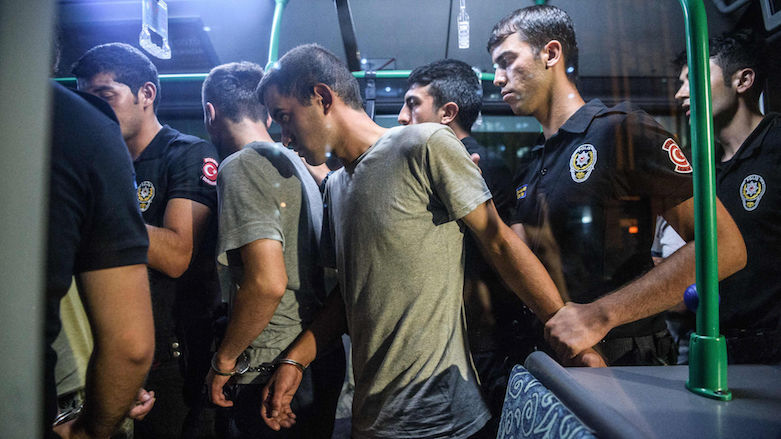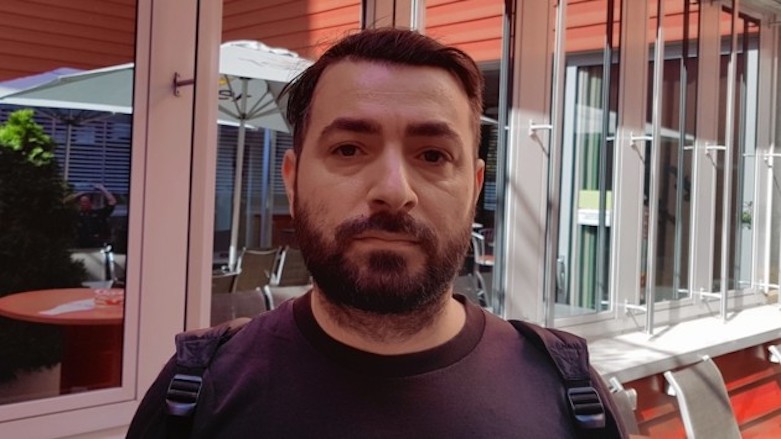More Austrian citizens arrested in Turkey

ERBIL (Kurdistan 24) – Two Austrian citizens were recently arrested in Turkey and accused of propaganda for the Kurdistan Workers’ Party (PKK), the Austrian news outlet Rundschau reported on Tuesday.
Kazim B. from Tirol was arrested three weeks ago after he visited Izmir with his family. His wife and children were allowed to return to Turkey, but he remains detained, waiting for his trial.
Sources indicated to Kurdistan 24 that he might have shared social media posts about Kurds, and criticized Turkish policies.
Furthermore, Hülya Y., a mother with three kids was also arrested in Turkey. Both are accused of making propaganda for the PKK.
“We want as Austrians to go on holiday without any fear, and in the worst case scenario we want protection from the Austrian state,” Dener K, who is in contact with the family of Kazim B., told Rundschau.
The Turkish pro-government newspaper Milliyet reported that Kazim B. was a candidate for the HDP in the Turkish general elections that took place on June 7.
Moreover, Ümit S, a Kurd born in Turkey holding Austrian citizenship, was banned from Turkey for five years for criticizing President Recep Tayyip Erdogan and Ankara’s Kurdish policy on Facebook in July. He spent a few days in prison before he was deported.
On Tuesday, Turkish police arrested an Austrian journalist, Max Zirngast, who is interested in Kurds, over charges of “terrorism.”
Thomas Schmidinger, a political scientist at the University of Vienna, told Kurdistan 24 this is not the first case of Austrian citizens facing arrest in Turkey.
“There are several cases of Austrians of Turkish background that were arrested, but Max is the first native Austrian. He was super interested in the Kurds and moved to Ankara to study after his Bachelor,” Schmidinger explained.
“He was definitely a left-wing activist and writer, and a very nice guy interested in ecology and feminism. He has definitely nothing to do with any armed struggle and just supported [pro-Kurdish] HDP [Peoples’ Democratic Party] and wrote critical articles about Turkey,” he said.
According to Schmidinger, it could be related to the fact Austria is trying to take away the dual citizenship of Austrian Turks. Thousands of Turks could lose their Austrian citizenship, Ahval reported in May.
Dual citizenship in Austria is illegal, although there are some exceptions.
“I guess it also has to do with the passport conflict that Austria tries to take away the citizenship of Austrian-Turks who regained the Turkish nationality,” he said.
Moreover, Austria previously closed seven mosques and tried to expel Imams paid by Turkey, The New York Times reported in June.
However, Schmidinger said that in the end, the mosques were not closed, and most of them were non-Turkish ones.
“Austria also kicked out Imams of the Diyanet recently. So there are a lot of political issues between Turkey and Austria. These people might also be hostages in this conflict,” he concluded.
Since a failed coup attempt in mid-2016 to overthrow Erdogan, many EU citizens have been arrested, tried, deported or sentenced to varying jail times over accusations of supporting terrorism and separatism.
According to the German Foreign Ministry’s travel advice, Turkish authorities arrest people not only for suspected membership in organizations such as the PKK and the Islamic State but also the Gülen movement, which is not listed as a terrorist organization in Germany.
Editing by Karzan Sulaivany

